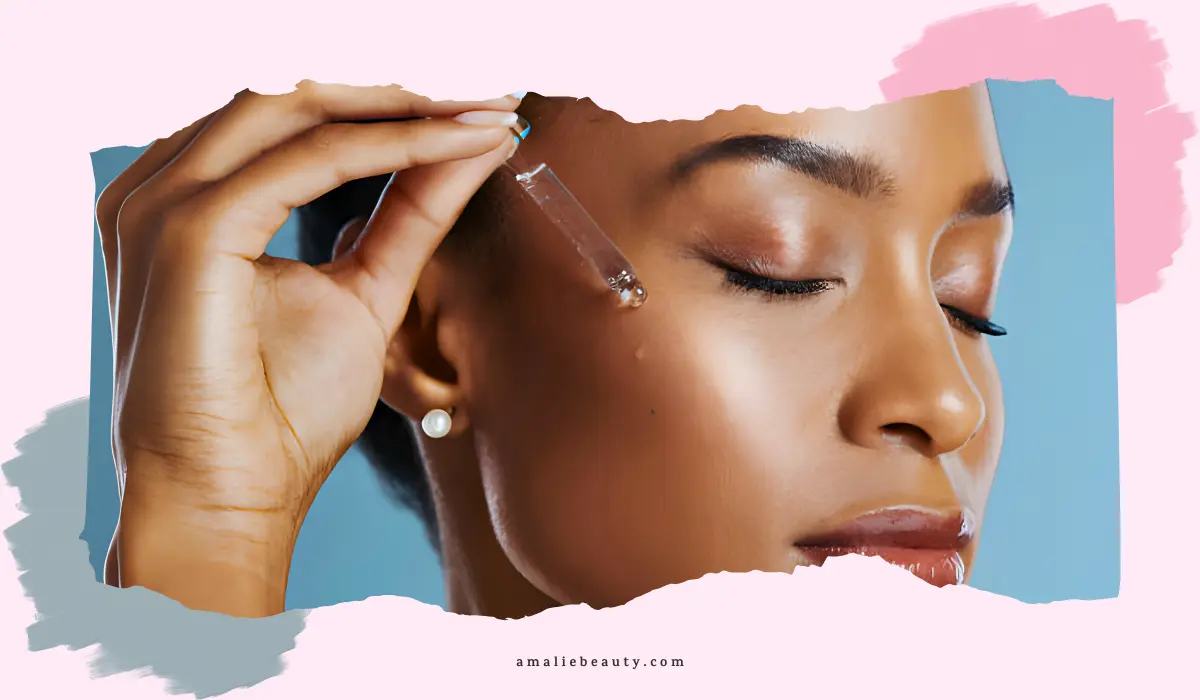Ever had acne on your face? Well, obviously, you had; everybody does at some point in their life. Not only during puberty, but people commonly suffer from acne on their face and other parts of their body. Acne outbursts are common and can happen to you anytime, and are caused due to the clogged pores and sebum production in them.
However, treating your acne with the help of hyaluronic acid is a wise choice you can make. If you are keen to know about hyaluronic acid (HA) and get rid of acne once and for all, keep reading. Here, you are going to learn about all the functions and benefits of hyaluronic acid on your skin:
Effects Of Hyaluronic Acid On Skin
When you first hear the word hyaluronic acid, you might think it’s a form of acid and probably be harmful to your skin. However, it is a natural compound found in your body, especially in the eyes, joints, and skin. Hyaluronic acid is responsible for your skin’s elasticity and increases the cushioning in your eyes and joints. It also makes up for all the damage caused by outside materials you get in contact with every day and repairs them.

Now, when you apply hyaluronic acid to your joints or eyes, whether through creams or injections, it provides all the cushioning they need in order to function correctly. However, If you are using it on your skin, hyaluronic acid can be beneficial in providing moisturization, treating your acne, and keeping it the same for a long period of time.
Most Significant Benefits Of Hyaluronic Acid
Hyaluronic acid is one of the most used compounds in skincare products worldwide and you can even administer it in its raw form. When it comes to the benefits of hyaluronic acid in the long term, it affects your skin in several positive ways. It can increase your skin elasticity and can even make your skin bright-toned. Here are all the other benefits of hyaluronic acid you should be aware of:
Increases Elasticity Of Your Skin
Hyaluronic acid is one of the compounds with the highest moisture retention capacity out of all the other skincare products. Not only that, but it also has the highest viscoelasticity, all of which is responsible for the elasticity and moisturization of your skin and eyes. Using hyaluronic acid on a regular basis can give you glassy skin and shiny eyes as well.
Prevents Pigmentation And Patches
Tanned skin and dark lips are some of the common effects of going into sunlight. The tan you face every day is a result of the pigmentation of the melanin layer on your skin, and it makes your skin darker. However, using sunscreen to prevent sun tanning is a usual choice for most people.
However, using Hyaluronic acid will not only protect you from UV rays but also keep the moisture of your skin locked in. Hyaluronic acid has one of the highest biocompatibility among other skincare products and is effective in showing positive effects with the lowest adverse effects.
Smoothening Of Pores
Hyaluronic acid is highly efficient in clearing out clogged pores on your skin and letting oxygen pass through those pores. Not only does it increase the hygiene of your skin, but it also makes your skin smoother and softer. Its hygroscopic properties make it easy for you to achieve bright, toned, and glowing skin.
Can Hyaluronic Acid Cause Allergies?
As mentioned before, hyaluronic acid is a natural compound found in your joints, eyes, and skin. So, that makes it a safe thing to use without the fear of allergic reactions on your skin. There can be some rare cases in which you might be having allergy symptoms like hives, rashes, or redness. In that case, consult your doctor immediately or get help from an expert dermatologist.
According to studies and research, hyaluronic acid doesn’t cause allergic reactions directly by itself. When you apply HA on your skin, it clears out all the pores abruptly, which can cause other outside elements to get inside, causing your allergic reaction, including swelling and bumps.
How To Administer Hyaluronic Acid?
One of the best things about hyaluronic acid is that it is extremely easy to administer and can be used almost regularly without any side effects. When looking for long-lasting benefits from hyaluronic acid, make sure you are ingesting at least 280 Milligrams every day for a period of 2 months. This will allow your skin to regain the optimal level of moisturization and cushioning, making it brighter and glowing. Anyway, here are all the administering types of hyaluronic acid for you:
1. Oral Ingestion
Oral medications of hyaluronic acids are simple, like taking vitamin tablets, and can be taken at any time of the day. When you ingest hyaluronic acid orally for at least 8 weeks, it not only thickens your epidermal layer of the skin but also reduces the risk of arthritis and myopia in the future.
2. Dermal Creams And Ointments
When you are looking for the benefits of hyaluronic acid on your skin, make sure you are using creams and gels for the most effectiveness. Dermal creams and gels filled with hyaluronic acid get instantly absorbed by your skin and show effects in a matter of few weeks.
3. Through Prescripted Procedures
When you are looking for treatment for severe cases of acne, which is hard to get rid of, your doctor might use hyaluronic injections for the remedy. There are some other procedures for clearing chronic acne, like under-skin injections in the nose and inhaling types.
Takeaways – Be Safe While Using Hyaluronic Acid
When you are new to the usage of hyaluronic acid for treating your acne or making your skin brighter, for the first time, apply the hyaluronic acid to your elbows to check the effects on your skin. If any type of redness or swelling happens, unfortunately, hyaluronic acid is not for you. However, if everything stays normal, you are good to go; apply hyaluronic acid or take oral medications, and enjoy your healthy joints, eyes, and skin.

